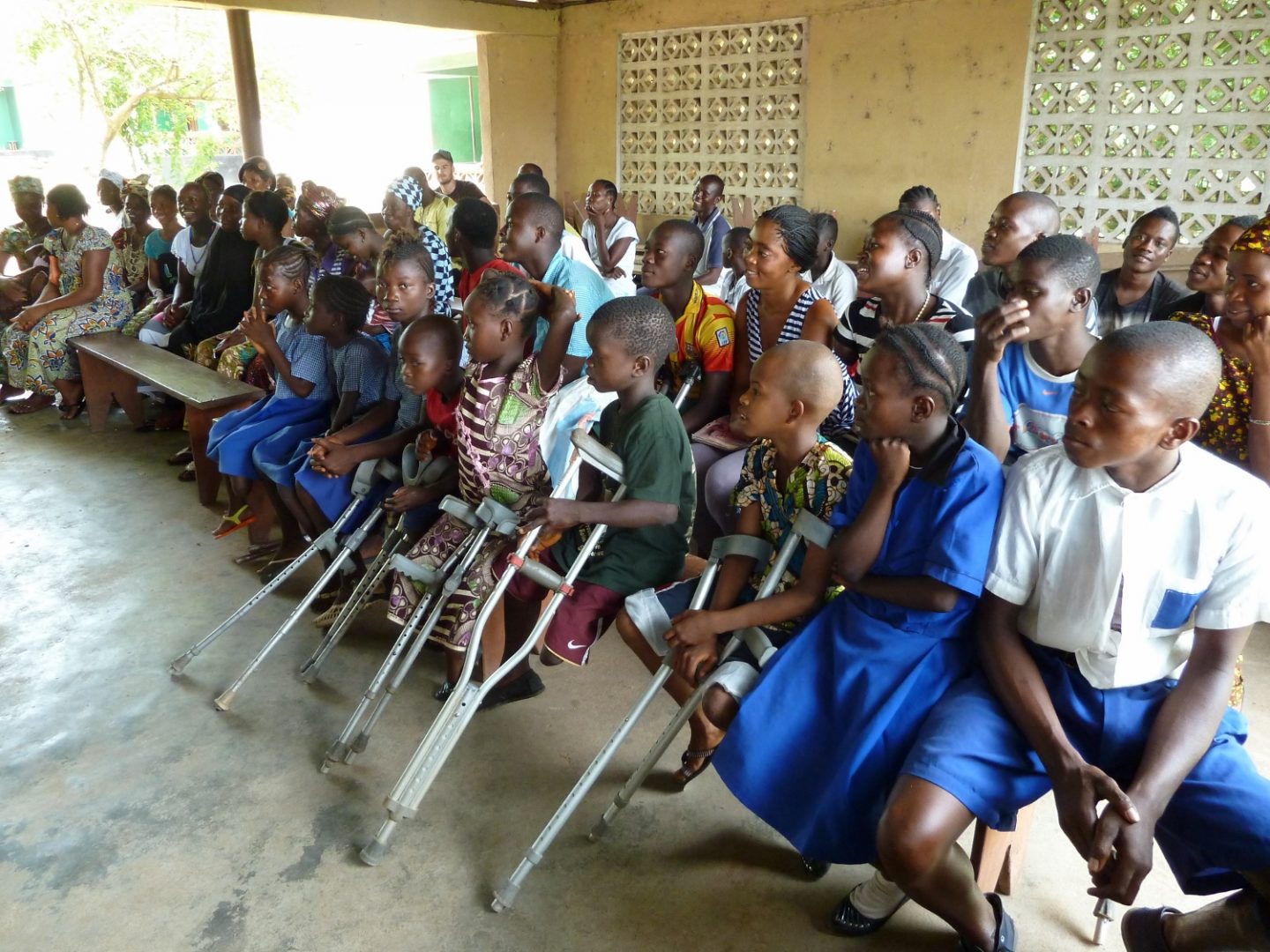Joseph A. Kamanda
All nine war-wounded amputees in Komoya village Tambaka chiefdom Karine district, North-West region, are amidst the present stormy economic challenges calling on government to urgently rush to their rescues with the relevant social conveniences. They are in critical need of food, medicines and clothing amongst host of essential services as victims of the ten years civil war.
As a result they have abandoned the homes built them at Mokoya to fend for survivals on streets of major towns in the wake of what is being widely reported to be described by opposition National Grand Coalition NGC chairman Dr Denis Bright as a nation in an economic emergency whiles addressing the party’s monthly news conference in Freetown.
Chief Mohamed Kamara is one of the victims, he said they could no longer cope with the harsh realities of hard life including hunger and starvation at Mokoya, where they have been abandoned by government, donor agencies and development partners and direct their collective attentions to their own so-called vulnerable and less privileged people at Grafton, south and eastern regions, leaving the actual war-wounded to perish and die of hunger and diseases in the north and other places in the country.
Apart from Mokoya war-wounded amputees, residents of Six Mile disaster resettlement community have also been calling on government to meet its promises and provide them with social services ranging from schools, market, community health posts, community centers, pure and safe drinking water, , mosques and churches as promised by president during the campaigns.
Six Mile host mudslide victims who were resettled there by government in partnership with development partners shortly after the disastrous August 14th 2017 flash flood and mud slide that dislodged residents of Sugar Loaf Mountain Regent, Ramayana, Lumley that took the lives, of many people and destroyed communities as well as property.
“All of these facilities were adequately available in our various communities at Kamaya, Motemeh, Regent and others areas that were affected by the flash flood,” recollects Amadu Williams, Six Miler with a family of four, told this reporter. Their calls according to him have always fallen on deaf ears as no attention has been focus on concerns of their community.
Government with support from private sector partners built homes for shortly after the disaster but most victims could not reside nor settle there, due to authorities’ neglect to provide Six Mile resettlement community with basic social service. The more reasons people are leaving their homes to return to their previous slum communities in Freetown, where they have access to the relevant social services.
Similarly so for the nine war-wounded amputees at Mokoya village, Tambaka chiefdom Karine district, equally deserve major urgent government attention with positive and meaningful social reactions to the sad plight of flash flood, mudslide and other environmental disaster victims, who all presently languishing at the Six Mile resettlement community, where they are also extremely being deprived of their needy social services-food as well as other basic needs. That Komoya amputees were also provided with shelters say housing are not enough, as they all need food, clothing and medication to keep them going.
That’s why despite the housing facilities the nine war-wounded amputees could not stay at Komoya, instead they had returned to Tambaka in search of help, food and other essential social supports from well-wishers and loved ones. They are left with no alternatives but always beg from the streets of Tambaka and Kamakwei for supports.
For the war-wounded amputees it is hard to stay and live in Komoya without welfare support because of their physically challenged and poor social status without support from government’s social actions if at all there is any in existence.
In several radio talk shows with most Six Milers recalls President Julius Maada Bio frequently visiting them during general and presidential elections campaigns, with promises of providing them with basic social support if voted as president which they did as requested. But president Bio is yet to fulfill his side of the social contract agreement signed with his supporters at Six Mile.
Six Milers said they too deserve very urgent attention from government as citizens and legitimate tax payers of Sierra Leone which why they are urging social actions entities to visit and do needs assessment of what exactly the people Six Mile want for their community. Schools, hospitals, markets, health and community centers and host of other services are the facilities they expect president would have provided them with by now. Rather president Bio last Sunday pleaded with Sierra Leoneans to be patient with his snail paced economic trend.
Patient in religious terms is indeed a virtue as God loves those who have patients, the Holy Bible says those who wait on the Lord shall renew their strengths, that is why Sierra Leoneans even before the Bio ear have already inculcated the culture while patiently waiting for the unknown redeemer in the nearest future, although not the paid up pop star Emerson’s ‘we dae wait oh, wait we dae wait gbain-gbain’. He’s being muted for awhile with few thousands of United State Dollars and no longer serves as voice of the people. We leave Emerson as a separate for another discussion.
“It is due to lack of social services that’s why you seeing people leaving their homes at the settlement so government it is sincere push to save us from disasters should ensure that Six Mile is provided with facilities that can make the community conducive for human settlement,” said one anonymous Six Miler adding, that since president Bio took up office he has never visit them at Six Miler like he used to do during his opposition days.
Mokoya and Six Mile people besides, down town Freetown is also a home to thousands of people who are in much need of social helps like food shelters, clothing, medical facilities including other amenities as Kissy Road and Cotton Tree in central always scenes of parading destitute of all sorts begging for moneys.
Not looked after by either relatives or their impoverished communities, physically challenged people are always lined up with their hands screeched towards windows vehicles sorting ends meet for the simple reason that they are not cared for by government. Is that the miracle being played by the government in meeting its human development expectations?
Like those vulnerable people and resettle communities at Six Mile and in Mokoya village as well all other physically challenged countrywide should continue in their strides to urge government to respond with the appropriate actions to their deplorable social status as they are going through troubles in their communities, thus need urgent support to transform their lives and communities as citizens of Sierra Leone, though being badly treated like foreigners.
On a final but very important note this medium therefore wants to join the vulnerable groups herein mentioned in the piece throughout in their loud cries in calling on government and president Julius Maada Bio to pay a little attentions with key focus on their welfare, by providing them with the essential social services in their various communities including Mokoya, Six Mile and other impoverished places in and around the country. Grafton is not the only place with vulnerable groups Mr President.













